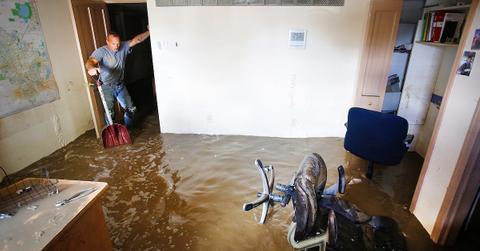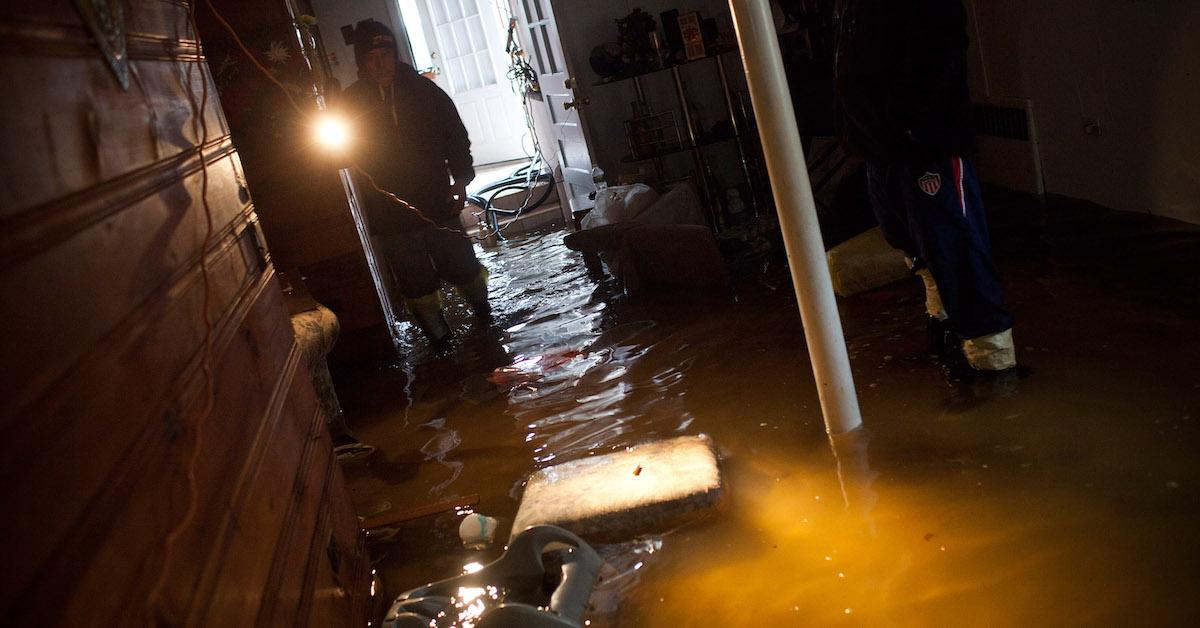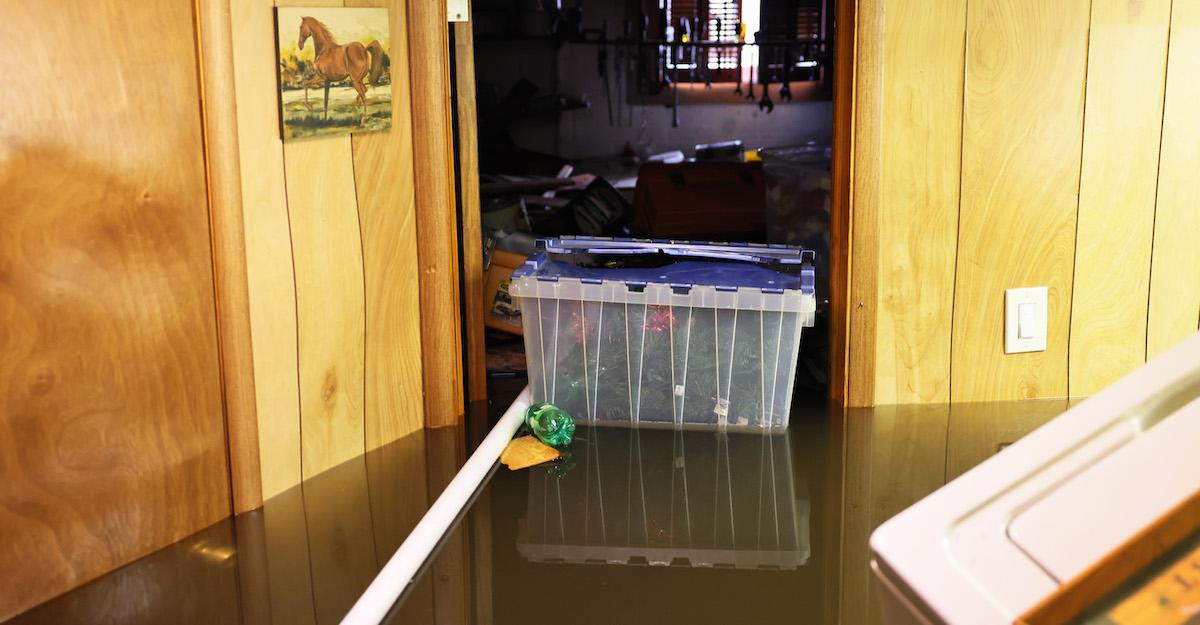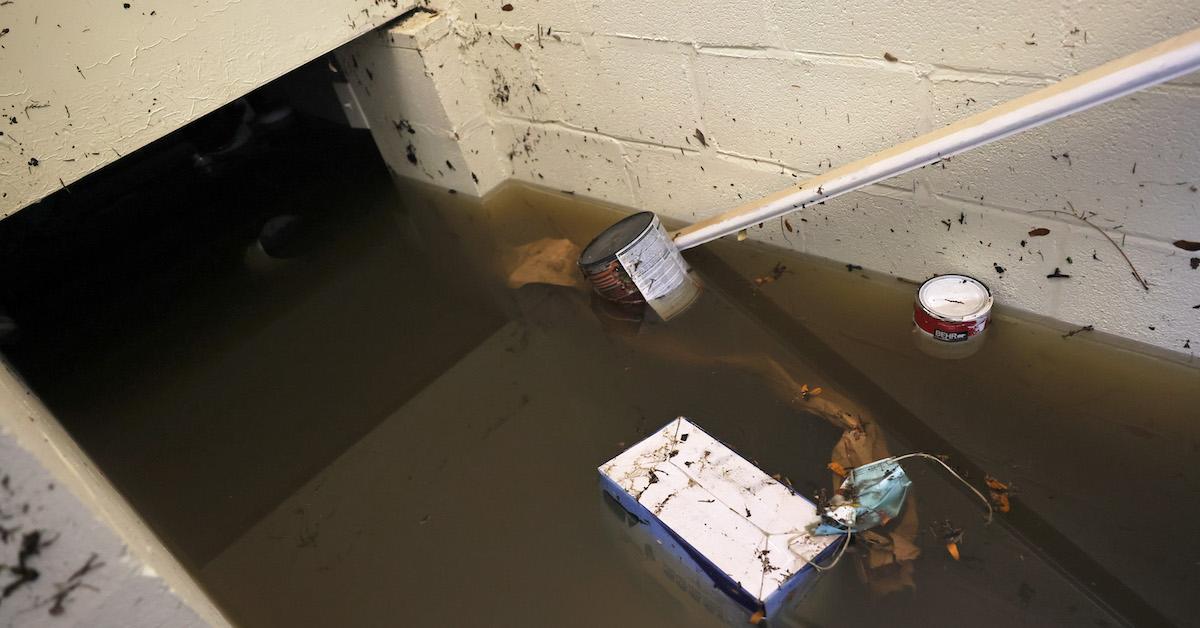Basement Flooding 101: What to Do if There’s Water Downstairs
Published Dec. 23 2022, 9:54 a.m. ET

It's every homeowner's worst nightmare to wake up to a basement that's completely submerged in water, but unfortunately, it's an issue that's all too common. Whether you had a pipe burst, or if torrential rainstorms led to water seeping in through the walls, it's a crucial issue that requires immediate attention.
So, what should you do if your basement floods? Getting the water out as soon as possible is absolutely imperative, for the sake of your belongings and your home.
Obviously, a flooded basement isn't ultimately the end of the world, so it's important to stay calm. But that said, it's a relatively severe problem that needs to be addressed immediately nonetheless.
First, you'll want to start out by figuring out how to get the water out; then, you should detect the root cause of the problem. And finally, you'll want to take any preventative measure you possibly can, to ensure this doesn't happen again, by calling a professional to evaluate the issue at hand.

Here's what you should do if your basement floods:
This may come as somewhat of a surprise, but if your basement floods, the first thing you should do is call the fire department. Yes, we know there isn't necessarily a fire in your home, per se, but the fire department has portable sump pumps they can bring to your house, free of charge. If you have Wi-Fi, you should Google the number for the non-emergency line. Once you get hold of someone, you can tell them the problem, along with your name, address, and telephone number.
As long as you have an outside entrance to your basement, they can snake the hose through the outdoor hatch, and pump the water out directly. As we said, you'll want to do this as soon as you notice the flooding, to avoid further damage from being done to your home, furnace, and electric box. If the fire department is too busy to do this, you can rent a sump pump from Home Depot.
Once the water is out of the basement, and after you've retrieved and dried out all of your belongings, you'll next want to identify what caused your basement to flood. To do this, you'll have to call a handyman (or really just a handy person).

Then, you'll need to figure out why the basement is flooding.
Once all of the water has been pumped out of your basement, you'll next want to figure out why the basement flooded, to fix any possible issues that may have caused the basement to flood in the first place. Consider calling a plumber, to see if any pipes burst, or a sump pump technician, to make sure your sump pump is still working.
You should also check to make sure all windows to your basement were closed, in case water came in that way.
And if the flooding resulted in any other issues with your heating or electricity, you should consider calling an electrician or your heating company. During the winter especially, it would be a catastrophe if your furnace wasn't working — this could lead to more pipes bursting, and therefore, more flooding.

Unfortunately, basement flooding will become increasingly common with global warming.
In general, climate change is unfortunately to blame for flooding.
Flooding is generally triggered by extreme weather conditions — whether cold temperatures froze your pipes, if local water levels rose too much, or if your sump pump was overwhelmed by torrential rain. Regardless, it's a problem that is being heavily exacerbated by global warming. So the longer our planet's temperatures continue to rise, the more likely your basement is to keep flooding.
Ideally, international environmental treaties like the Paris Agreement will curb global emissions and therefore, climate change. But until then, your basement might experience more and more flooding.